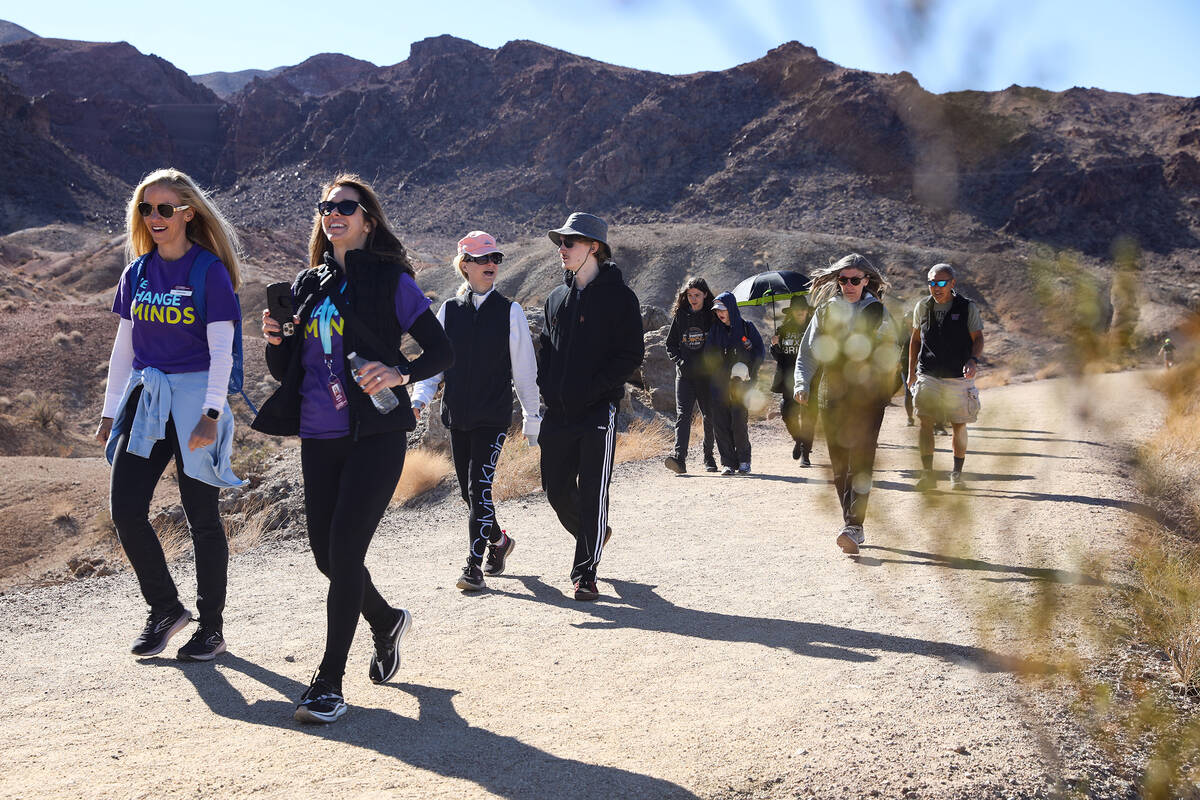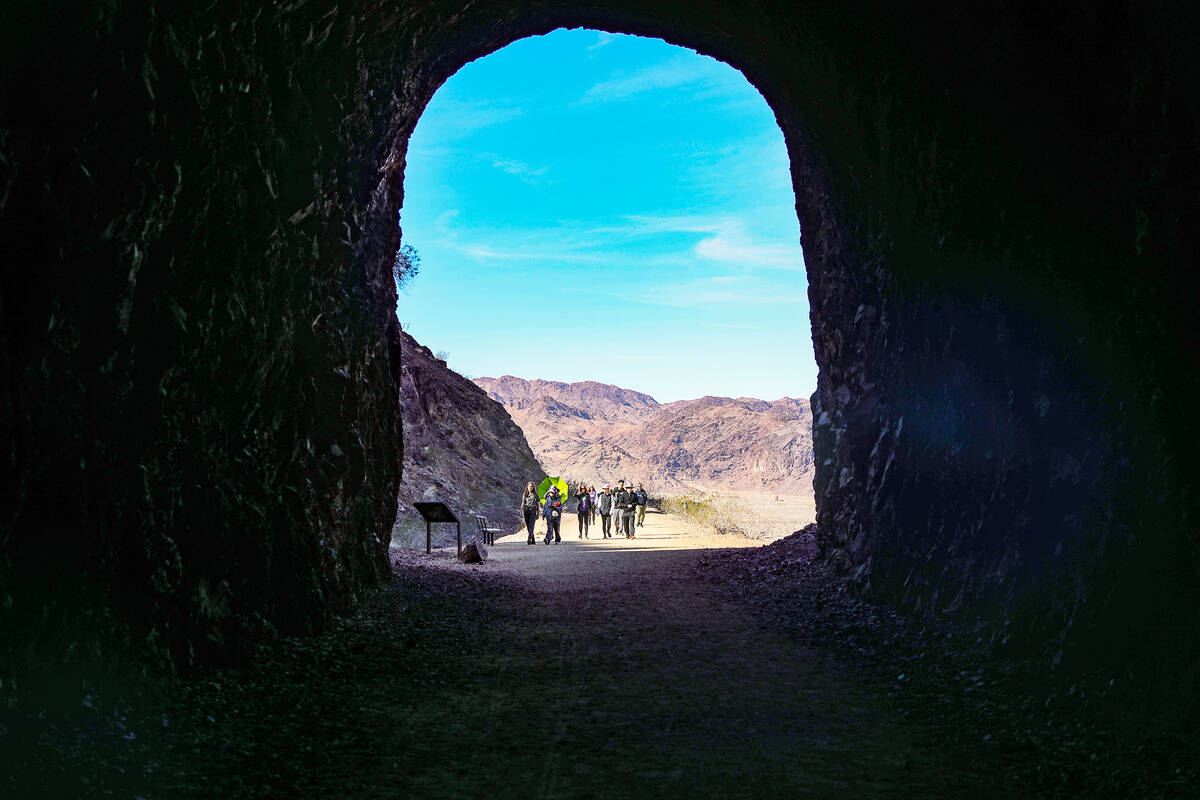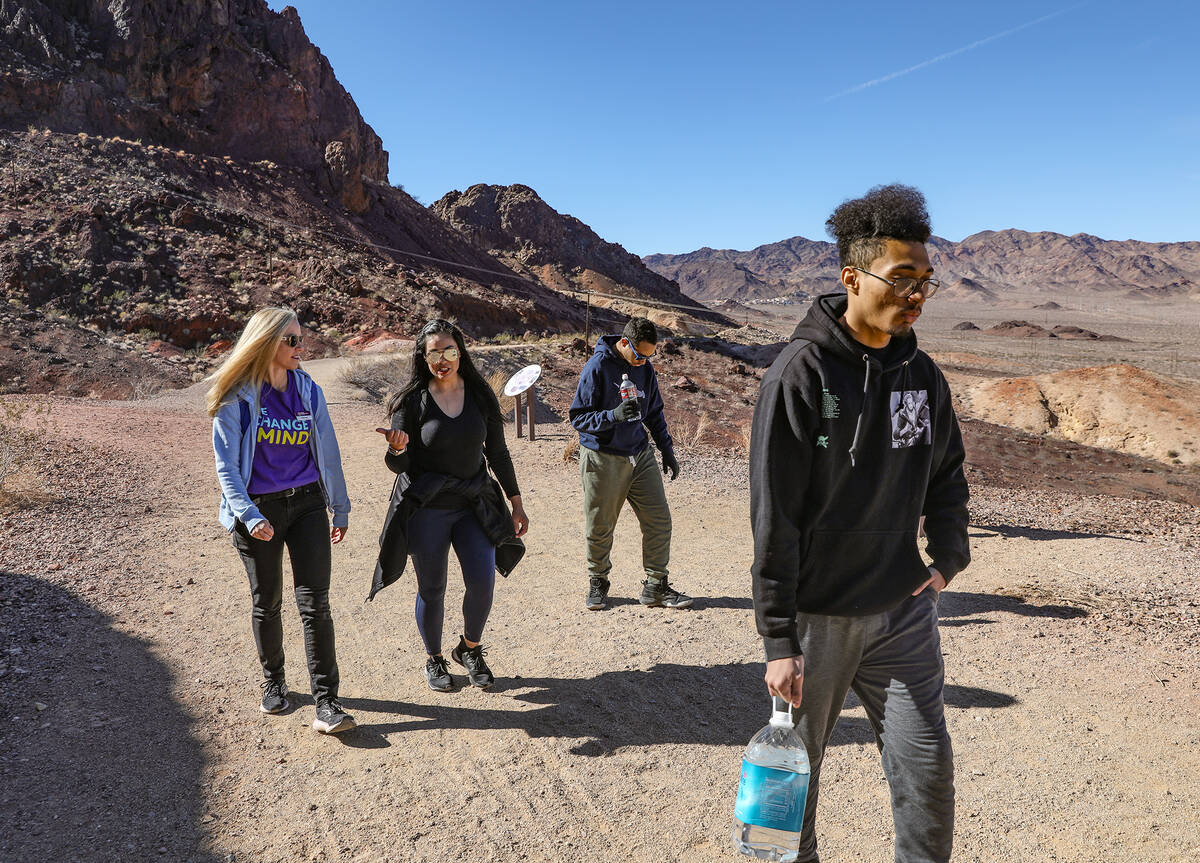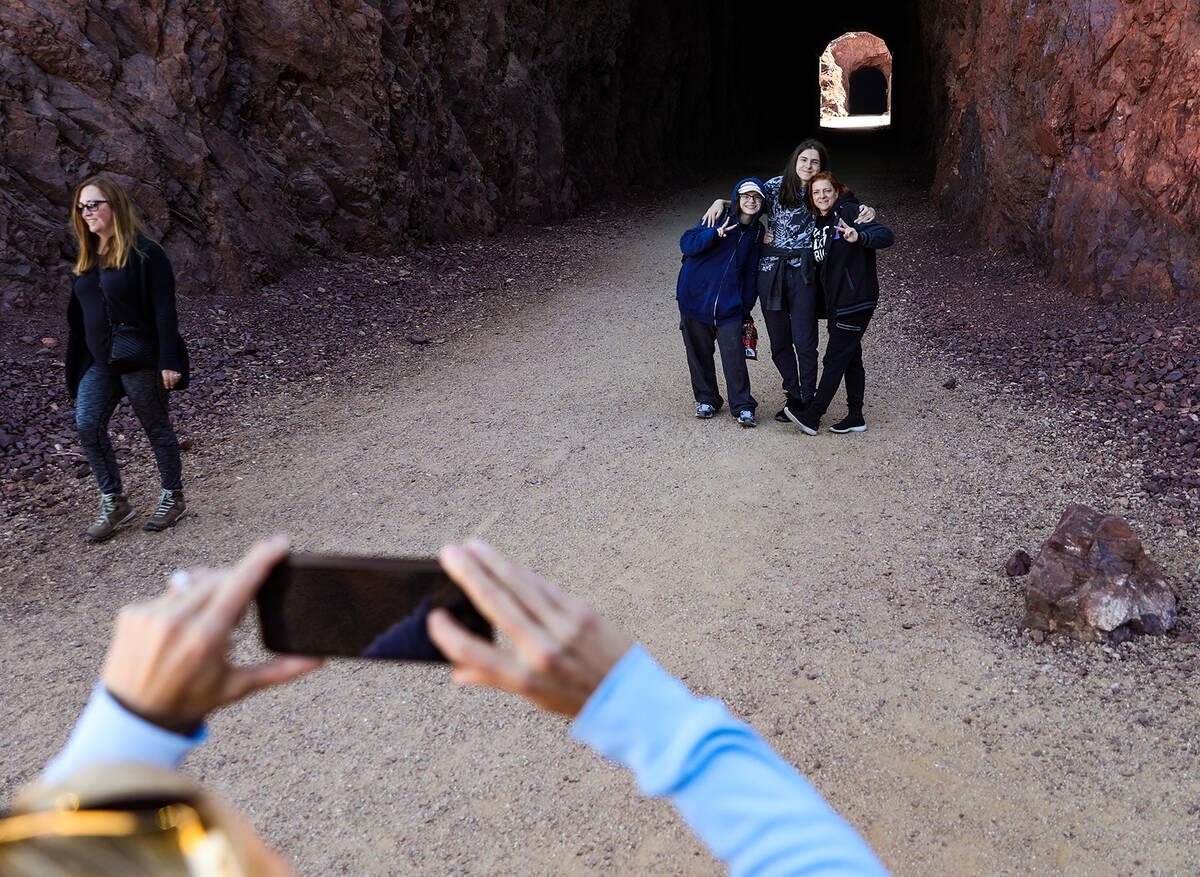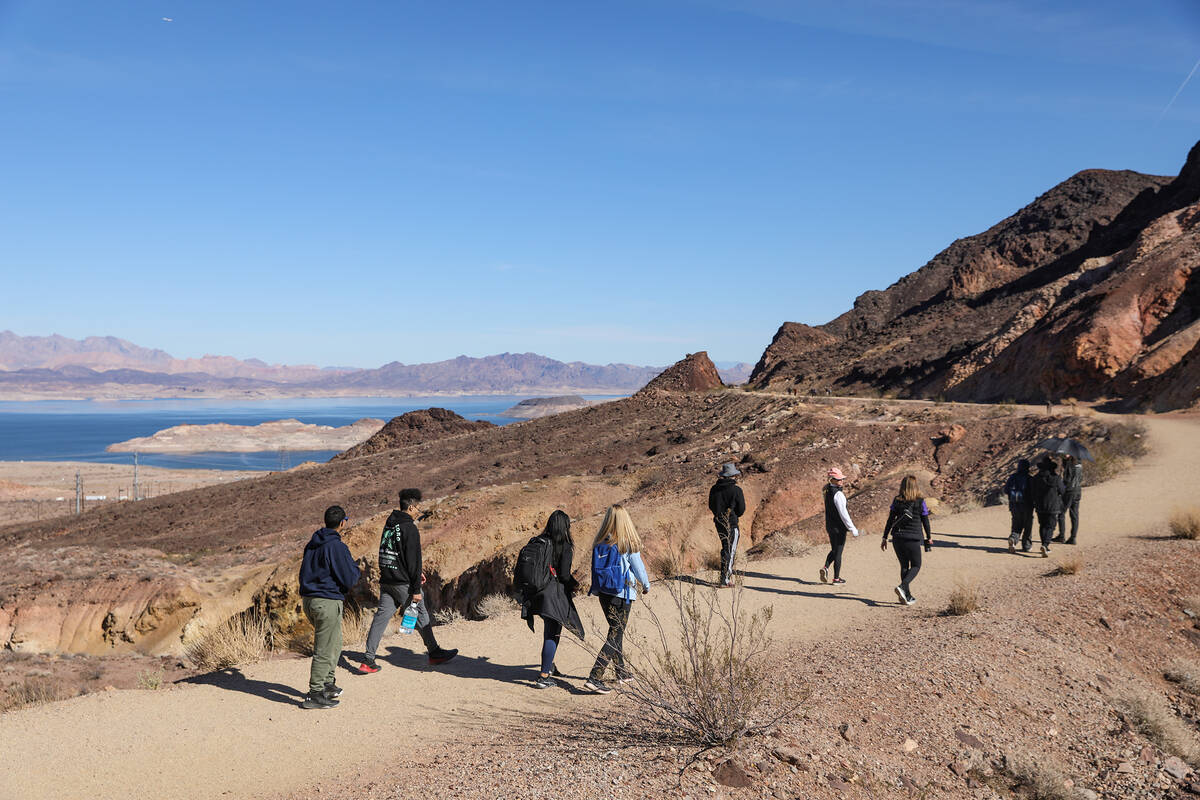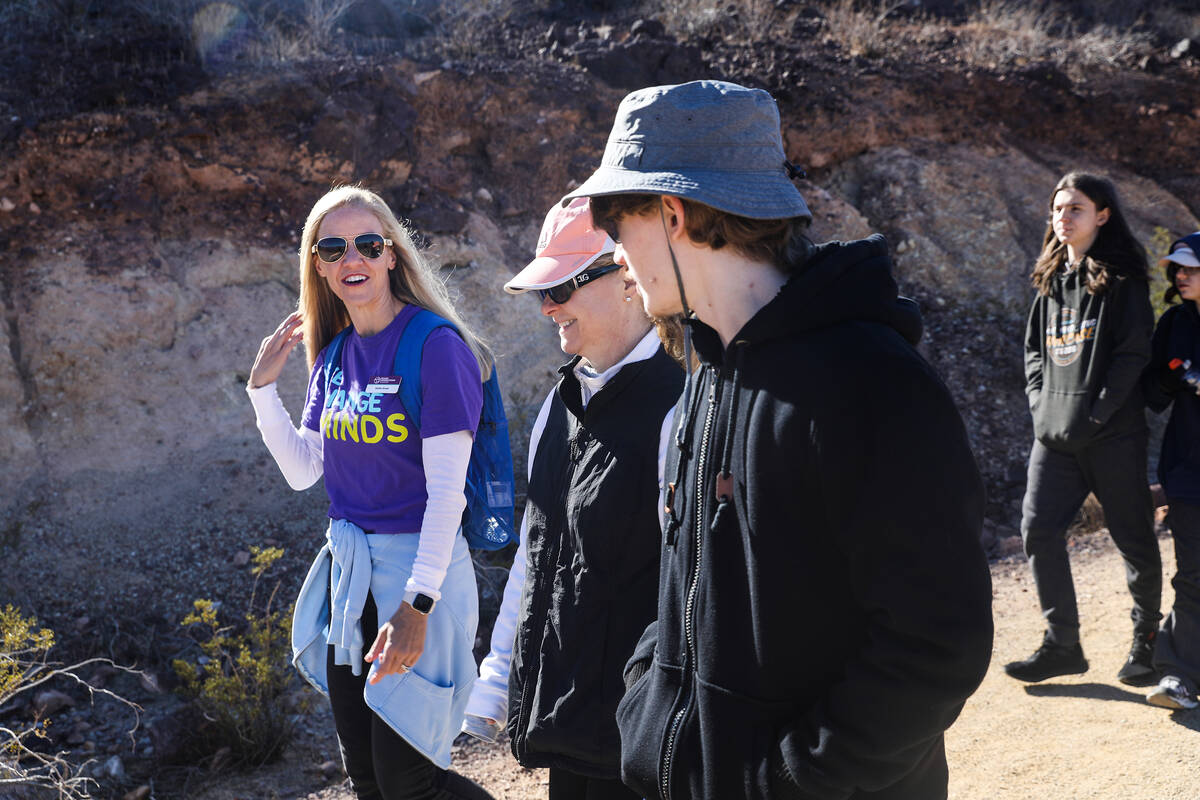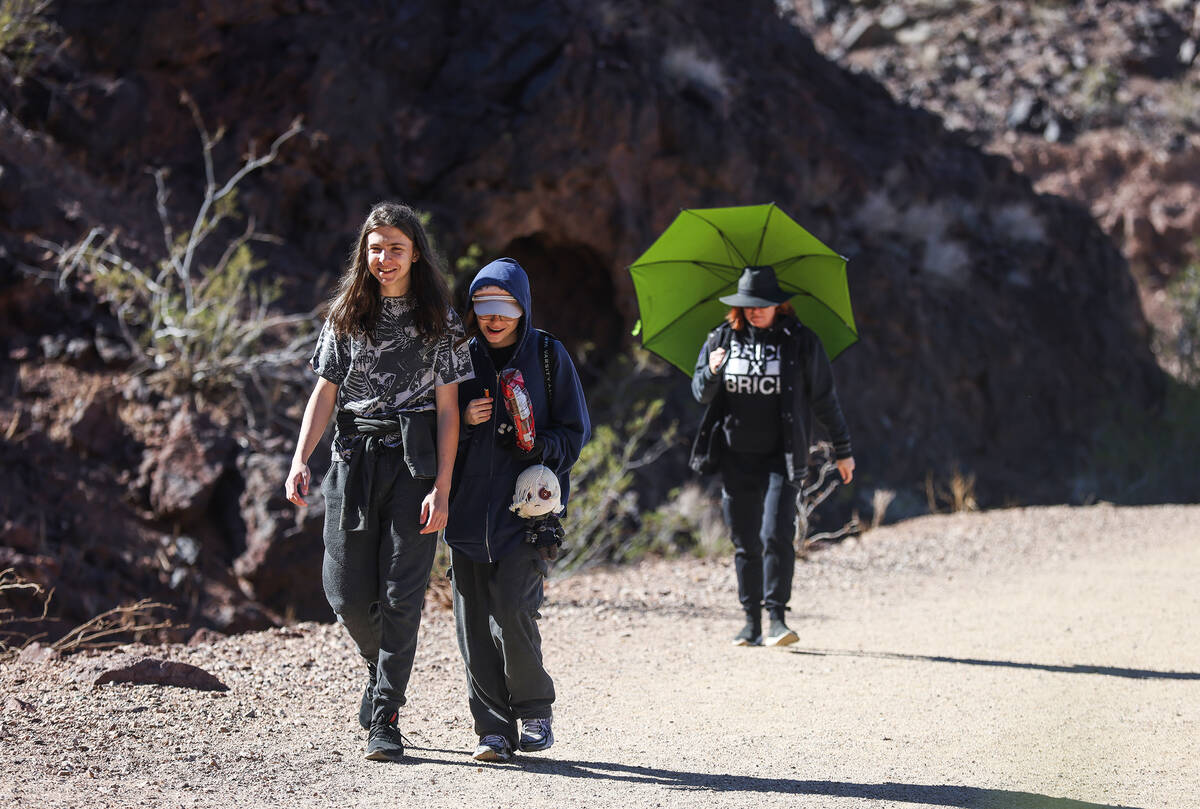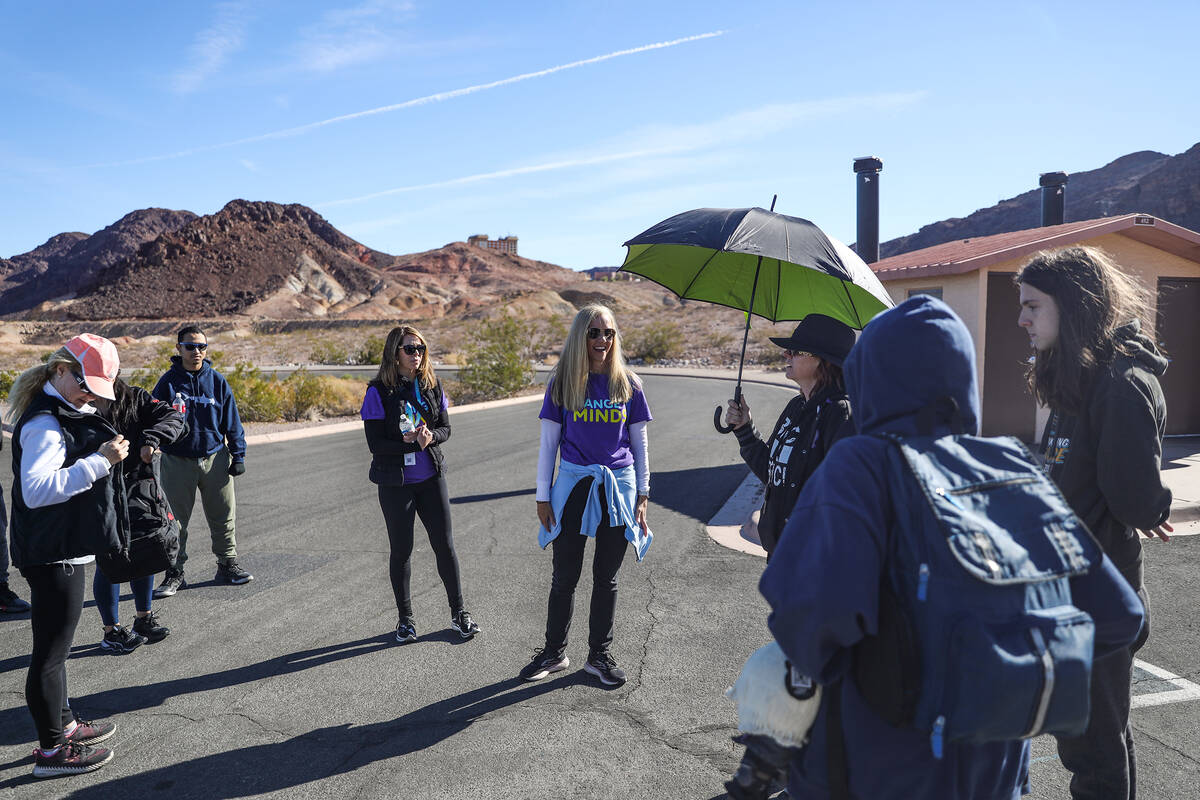Online school that fought state closure now plans for future
Paige Taylor used to attend traditional in-person schools, but the COVID-19 pandemic spurred her to try something new.
“Honestly, when COVID hit, all of the schools didn’t know what they were doing,” the 17-year-old Henderson resident said.
Her older brother was previously a student at Nevada Connections Academy — an online tuition-free public charter school that serves students statewide — so Taylor already knew about that option. She enrolled as a high school freshman and is now a junior.
Taylor said it was a smooth transition to an online-only education.
“Honestly, I thought it would be a lot harder,” she said.
Just a couple of years ago, the school faced an uncertain future.
In 2020, the Nevada State Public Charter School Authority’s board voted to close the school, but later reversed course after the school filed a lawsuit. Since then, the high school has boosted its graduation rate and academic performance.
Now, the school is preparing to go back to the authority Dec. 16 to seek a charter renewal, which would allow it to continue operating.
Nevada Connections Academy recently garnered 70 points out of a possible 100 on the Nevada School Performance Framework accountability system for the 2021-22 school year. The state Department of Education released the data in September.
“We were so ecstatic to make those gains, and it really felt like there was finally public evidence and justification for the hard work we had put in,” said school Superintendent Chris McBride, a Reno resident who has been the school’s leader since November 2017.
The school’s accountability score is up significantly from 13.8 for the high school in 2018-19, when it was a one-star school — the lowest rating possible. Star ratings haven’t been issued since then because of the pandemic.
The point system is based on several factors, including academic achievement, graduation rates, English language proficiency, college and career readiness, and student engagement.
Nevada Connections Academy’s four-year high school graduation rate also jumped from 63.7 percent in 2018-19 to 86.1 percent last school year.
“It doesn’t happen quickly,” said Principal Christine Dzarnoski, who lives in Henderson and has been at the school since 2015, starting as a fifth-grade teacher. “It’s something that happens over time.”
School officials say one of the major factors behind the school’s success was the creation of a college and career readiness program. Students have three track options: Advanced Placement/honors classes, career/technical education classes, and dual credit, where students earn high school and college credits simultaneously.
The state’s charter school authority said in a written statement to the Las Vegas Review-Journal that following the decision in 2020 to allow the school to remain open, it has closely monitored the school’s performance, including through quarterly reports.
“Over the last three years, Nevada Connections Academy has shown substantial academic improvement and the results released by the Nevada Department of Education in September reinforced the progress that has been made,” the authority said. “The SPCSA congratulates all of the staff, students, and families at Nevada Connections Academy that have worked incredibly hard to improve proficiency, graduation rates, and college and career readiness.”
Past closure attempts
The charter authority previously flagged Nevada Connections Academy, which opened in 2007 and formerly served kindergarten through 12th graders, for possible closure.
The school filed a lawsuit in 2016. The following year, the school and authority reached an agreement that set graduation rate benchmarks.
The charter authority’s board then voted in January 2020 to reject a charter renewal request, which included only middle and high school grades, citing concerns over achievement rates.
Nevada Connections Academy and a few families filed a lawsuit in Carson City District Court seeking to reverse the decision. It alleged a breach of the 2017 agreement with the charter authority that said the school could stay open if it boosted its graduation rates, which the school said it did.
The school’s request for a preliminary injunction for the high school was granted, but it was denied for the middle school.
The authority approved a settlement agreement with the school in May 2020, dismissing pending litigation and allowing it to stay open under a three-year contract.
While the school may not always see eye to eye ideologically with the charter authority, McBride said, it’s also aware and understanding of some of the challenges the authority faces.
“We really do have a good relationship with the public charter school authority, and they have been very supportive of our school since the renewal,” he said.
The authority is doing everything it can to ensure that the school has what it needs to be successful, McBride said.
At Nevada Connections Academy, the elementary and middle schools closed at the end of the 2019-20 school year, meaning it now only operates as a high school. And as part of an agreement with the charter authority, the school enrolls only ninth and 10th graders, McBride said.
The school is highly effective in graduating students, but it’s easier when they receive students earlier in their high school years, McBride said.
A longer-term goal for the school is to bring back other grade levels, Dzarnoski said. That request won’t come before the charter authority board in December, though.
The authority wants to see more than one year of success before allowing the school to expand to other grades, McBride said.
“We do want to serve students at all grade levels,” he said.
Students from across Nevada
The school has nearly 1,200 students, and about 60 percent are from the Las Vegas area.
Students come from a variety of circumstances, Dzarnoski said. Some work in addition to going to school or are caregivers for their parents, while others have a medical condition that precludes them from going to a traditional school in person, have a baby, or are athletes or aspiring actors.
Some students are from small towns across the state, Dzarnoski said, and are seeking out more education offerings.
Others are behind on academic credits and are trying to catch up.
“Some students choose us because they haven’t had a lot of success in brick-and-mortar schools, and for a lot of them, it’s their last-ditch effort,” McBride said.
School on-boarding specialists help students individually set a routine of when they’re going to complete the required number of lessons for the week, Dzarnoski said.
It’s optional for students to participate in live lessons, and recordings are available.
Taylor said she likes the schedule flexibility. She teaches martial arts seven days a week for five to six hours a day, so she often does her schoolwork after midnight.
She has taken Advanced Placement classes, finished a health science career and technical education program — she wants to be a veterinarian — and enrolled in dual-credit classes.
Taylor said she hopes to have most of an associate degree done by the time she graduates from high school.
She said she also likes that her classmates are inviting and open in their communication. She was planning to meet her peers in person during a school-sponsored hike Thursday in Boulder City for “National Take a Hike Day.”
McBride worked in brick-and-mortar schools prior to coming to Nevada Connections Academy, but he said he discovered that there’s more time to individually connect with students at the online school.
“Our teachers often build better and stronger relationships with students and families,” he said.
Contact Julie Wootton-Greener at jgreener@reviewjournal.com or 702-387-2921. Follow @julieswootton on Twitter.



